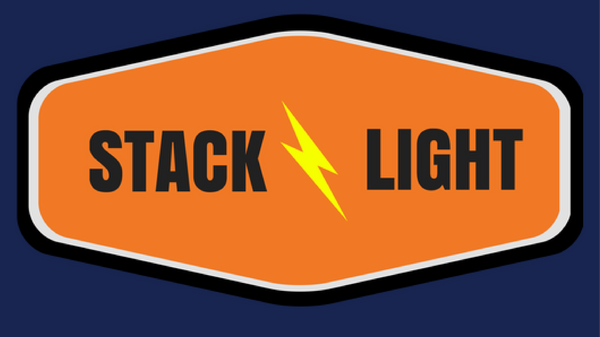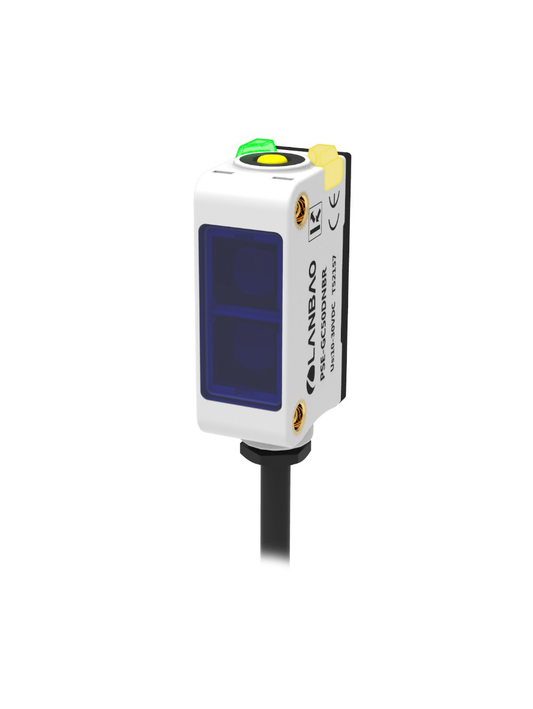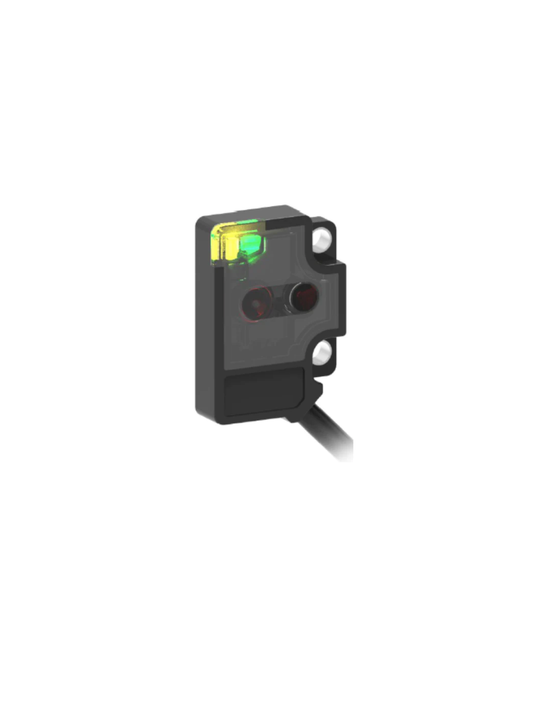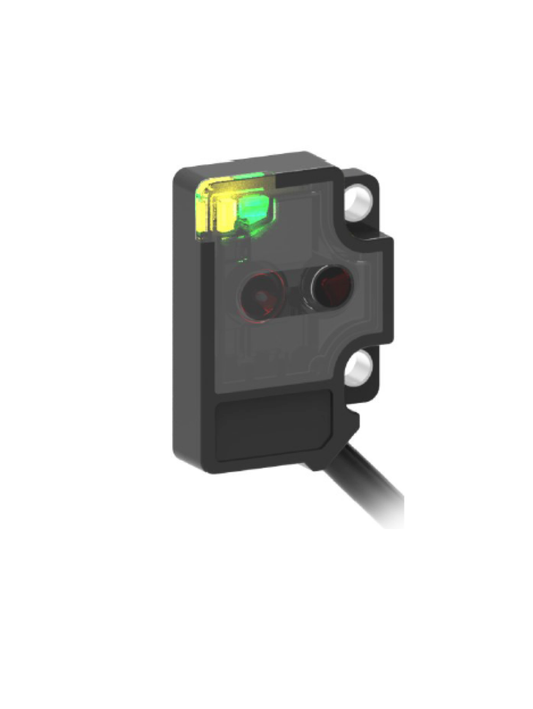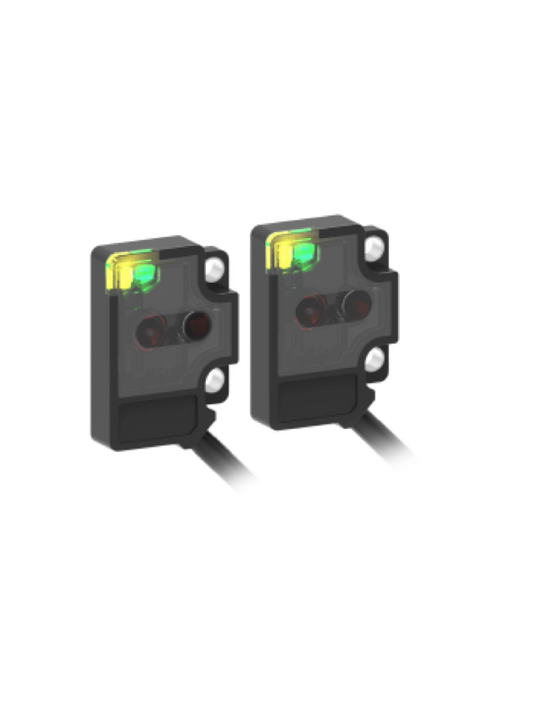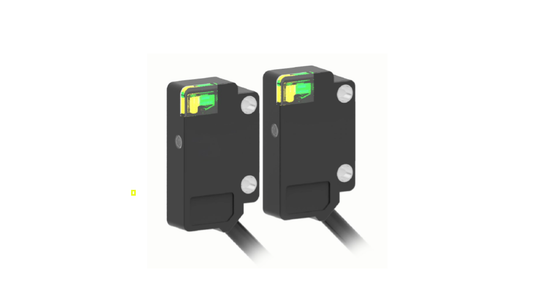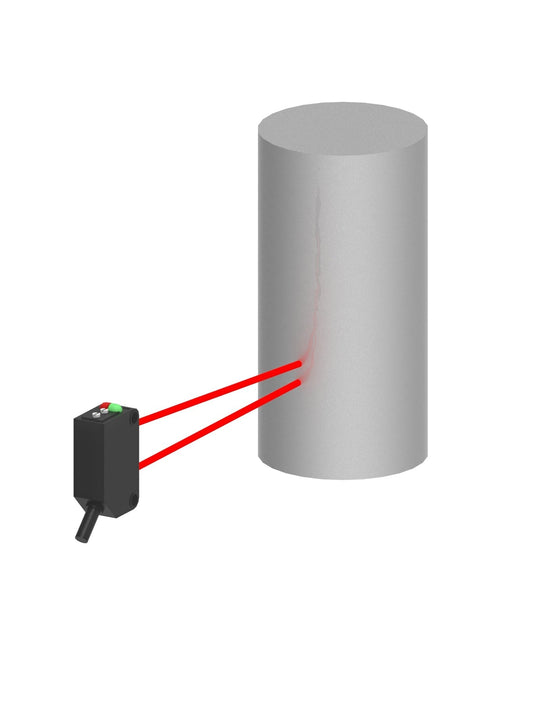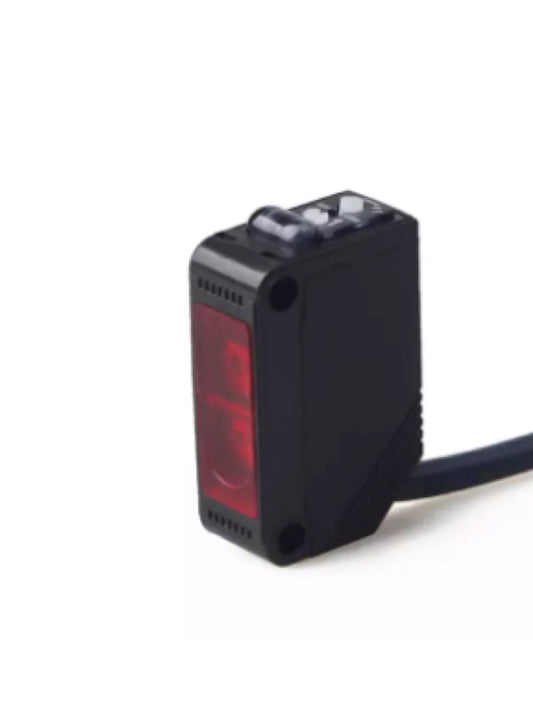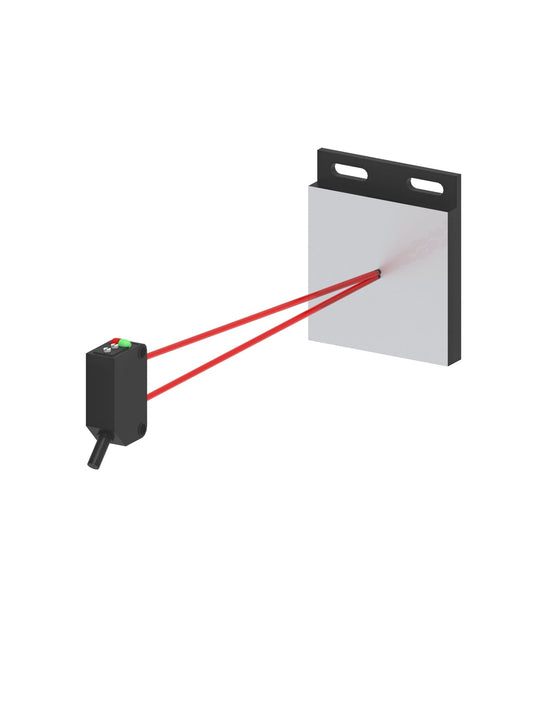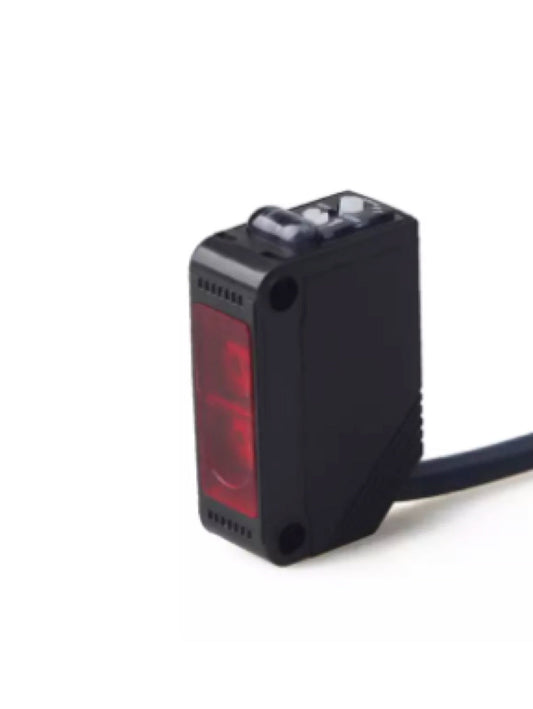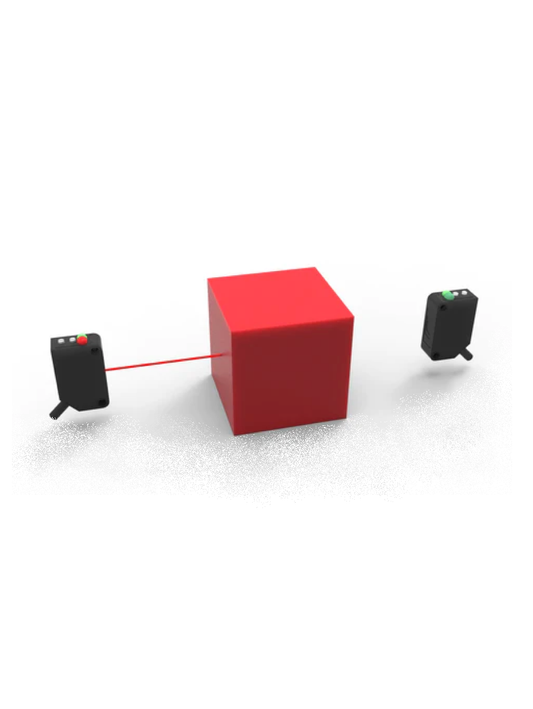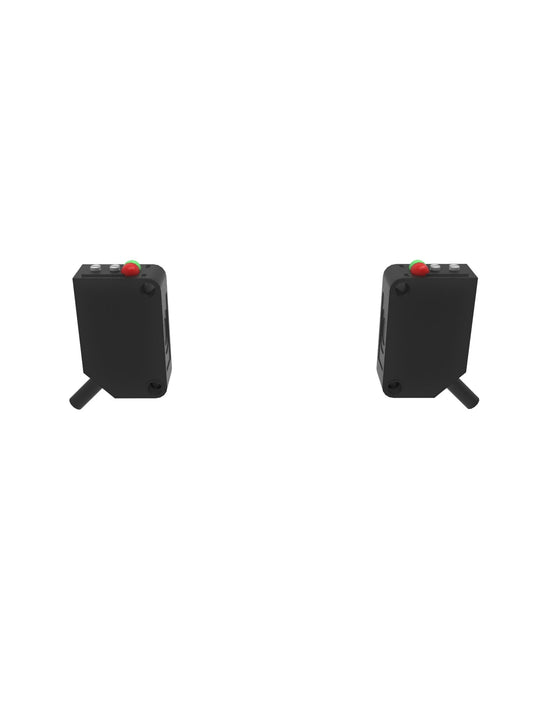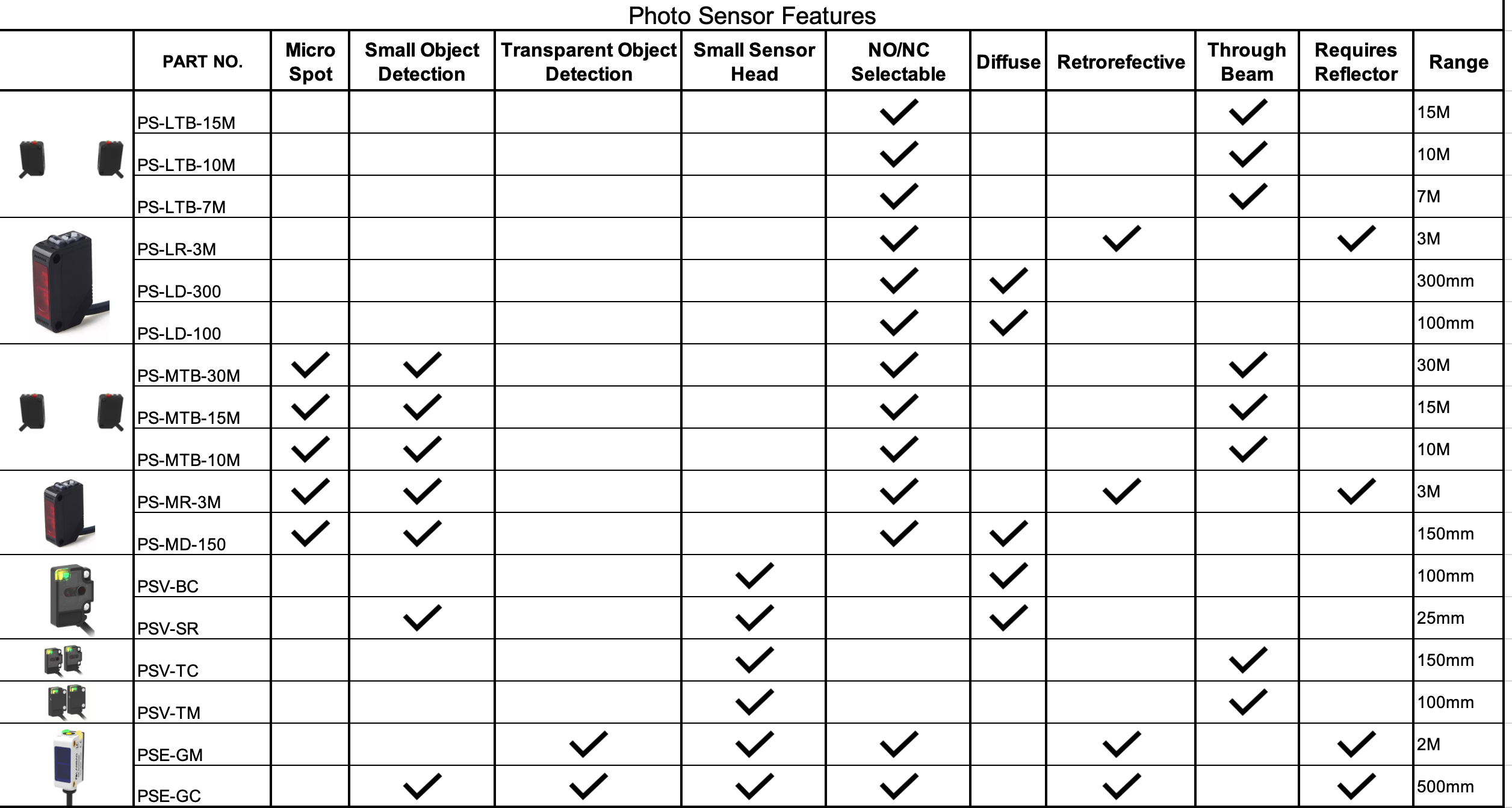Photo Sensors
We carry a large variety photo Sensors including Through Beam, Diffuse and Retroreflective. Call and Let us help.
-
Transparent Object Photo Sensor -
Vendor:PSE-GM & PSE-GCRegular price $179.00 CADRegular priceUnit price / per -
Miniature Photo Sensor
Vendor:PSV-BC & PSV-SRRegular price From $125.00 CADRegular priceUnit price / per -
Miniature Through Beam Photo Eye Sensor
Vendor:PSV-TC & PSV-TMRegular price From $133.00 CADRegular priceUnit price / per -
Diffuse Photo Sensor
Vendor:PS-MD & PS-LDRegular price From $107.00 CADRegular priceUnit price / per -
Retroreflective Photo Electric Sensor
Vendor:PS-MR & PS-LRRegular price From $109.00 CADRegular priceUnit price / per -
Through Beam Photo Sensors
Vendor:PS-LTB & PS-MTBRegular price From $109.00 CADRegular priceUnit price / per
Collection: Photo Eye Sensor
Photo Beam Sensors for Automation
Stack-Light.com carries a wide selection of photosensors for automated equipment, machinery, and industrial applications.
Photo Electric Sensors are switches that change their state based on the presence or absence of light. All photoelectric sensors contain an emitter and receiver. The emitter provides a light source and the receiver receives the light. This makes it possible for them to detect objects.
The three most common types of photo eyes are through beam, Diffuse Mode, and retroreflective. 
Through Beam Photo Sensor
Through-beam optical sensors are often referred to as opposed mode sensors. This is because the emitter and receiver are housed separately. They point at each other and the emitter sends a light beam to the receiver. When the light is blocked the state of the switch is changed.
These are the most reliable type of photo eye sensor and are a good choice for applications that have room to mount both components. These sensors typically have longer sensing ranges because they do not rely on light reflecting off a part or reflector.

Retro Reflective Sensor
Retroreflective sensors reflect light off a reflector. A single housing contains the emitter and receiver. This saves space and makes wiring easier because it only requires running one wire back to the control or PLC.
The emitter transmits light to the reflector, which then bounces back to the receiver. An object that blocks the path will trigger the photo sensor switch. Some retro-reflective sensors can read from reflective tape and others use a plastic reflector. The reflector is often polarized to prevent other shiny objects from causing false signals.

Diffuse Photo Electric Switch
Diffuse sensors are similar to retroreflective sensors. The transmitter and receiver are housed together. Diffuse mode sensors bounce the light off an object instead of a reflector.
Often mounting a reflector or a receiver is not feasible. In these cases, these can be the best option.
Diffuse photo sensors require more setup time because the reflectivity between objects can vary. Ideally, users would use these on applications where the color and the distance between the part and the sensor do not vary.
Light Spot size
The size of the light beam can be important when detecting unique objects. For small parts using a small beam of light can be helpful. Small spot sensors can also help position objects with precision.
You can use larger light beams to detect objects made from porous materials. A large beam might have difficulty detecting small objects because some of the light could pass around the part and bounce back to the receiver.
Special Purpose Sensors
The PSE line of photosensors detects clear objects. You can select these based on object detection size or range. The PSE-GC Senors has a 2M range and a larger spot. The PSE-GC has a small spot for the detection of small transparent objects.
The PS line of photo eye sensors offers many benefits. They are rugged and made for industrial applications. They are IP65-IP67 rated and you can wash them down. They operate on 12 or 24V DC and come with 2M cables.
Some Photoeyes allow you to change the sensing mode from light operate to dark operate. This is the equivalent to changing a switch from normally open to normally closed.
Call and discuss your application. We will work with you to select the perfect photo eye for your project. We can test your parts at our facility Call now!
